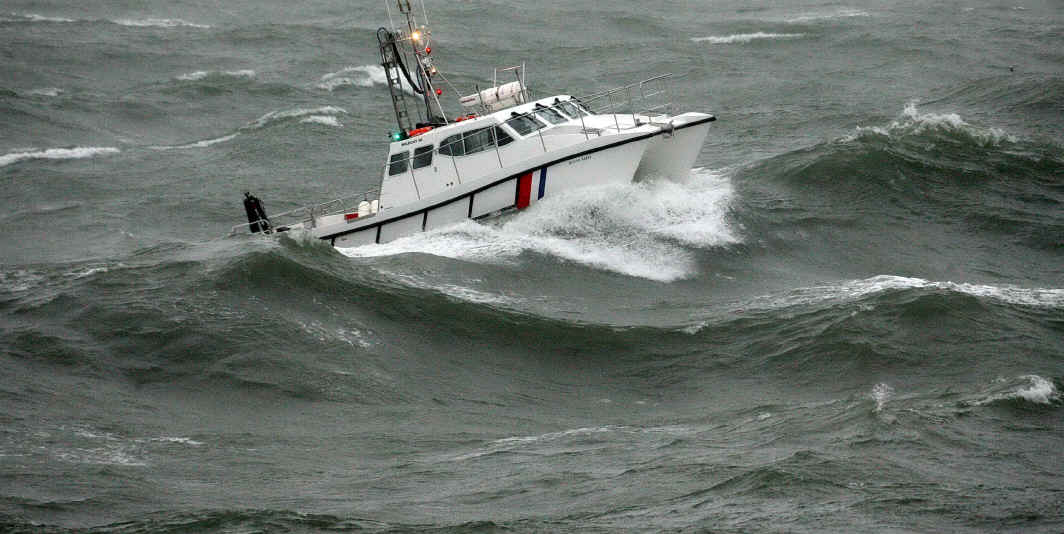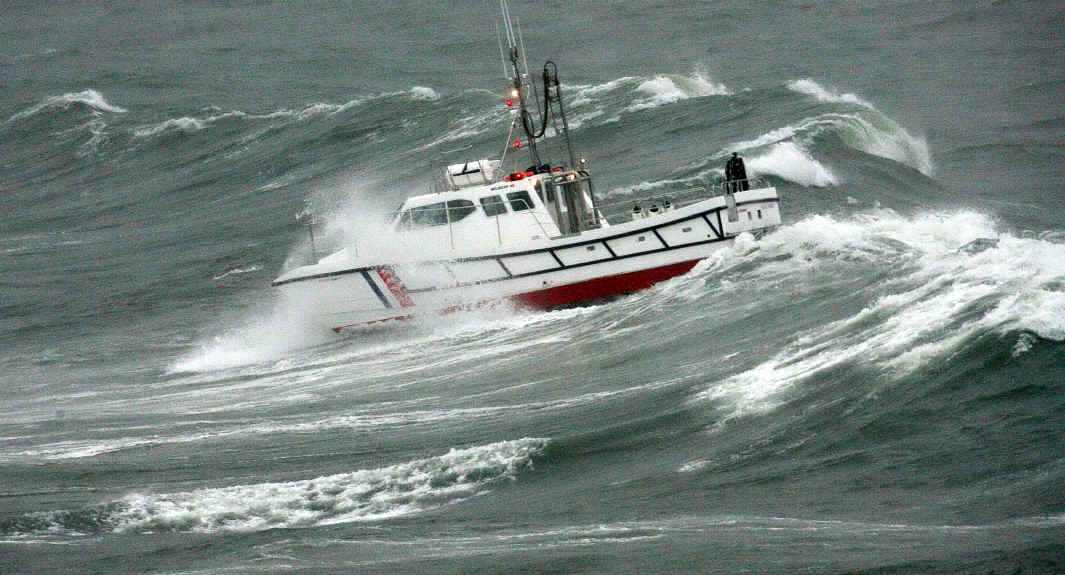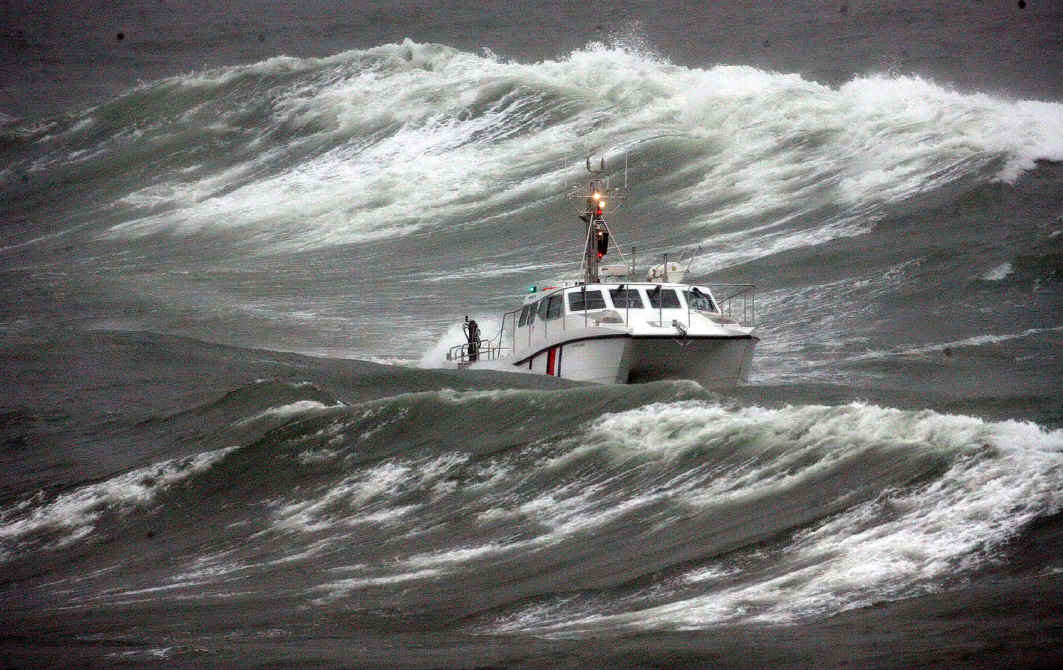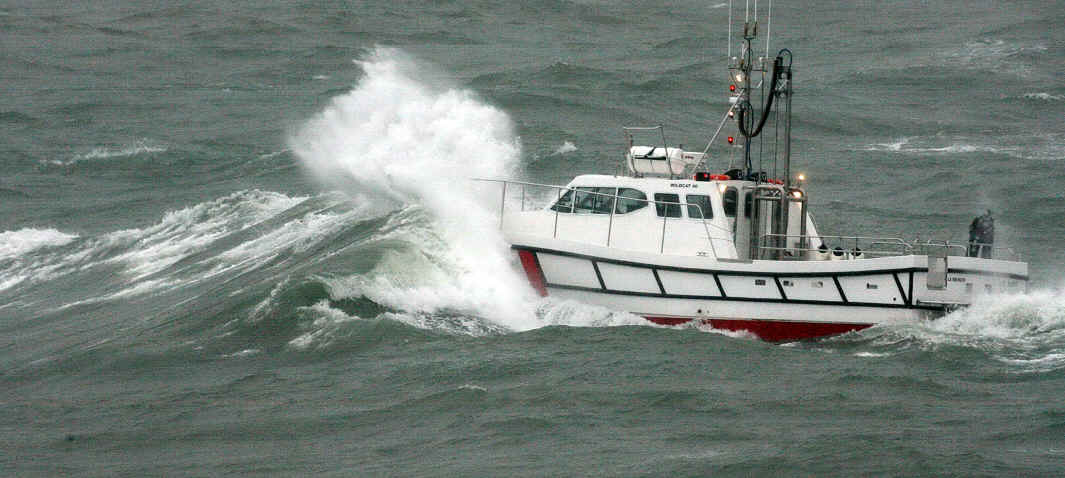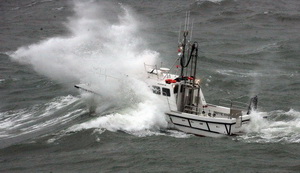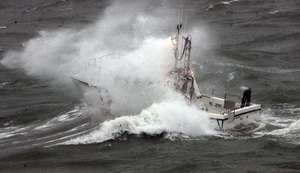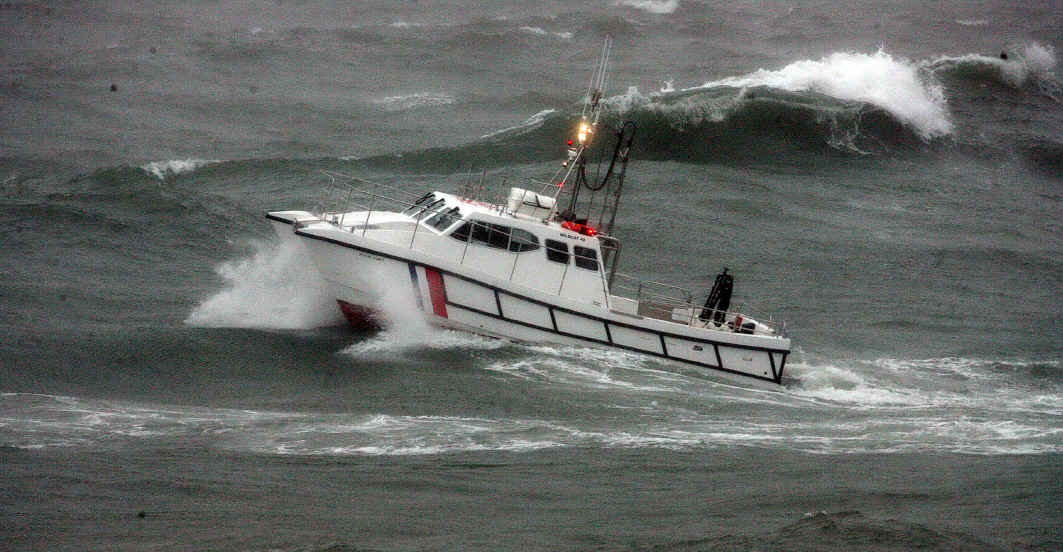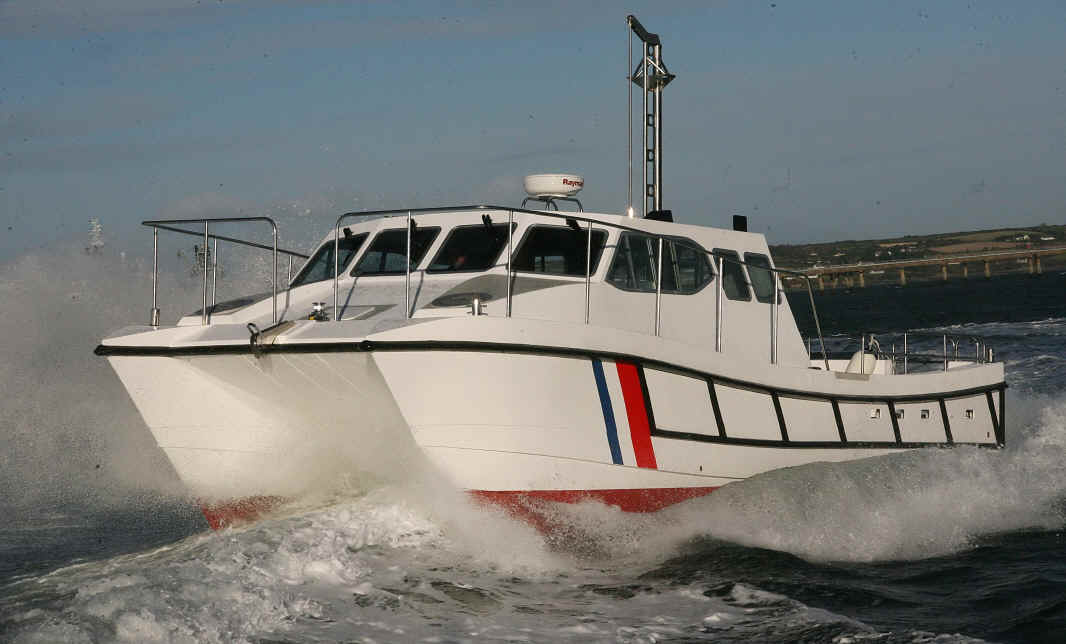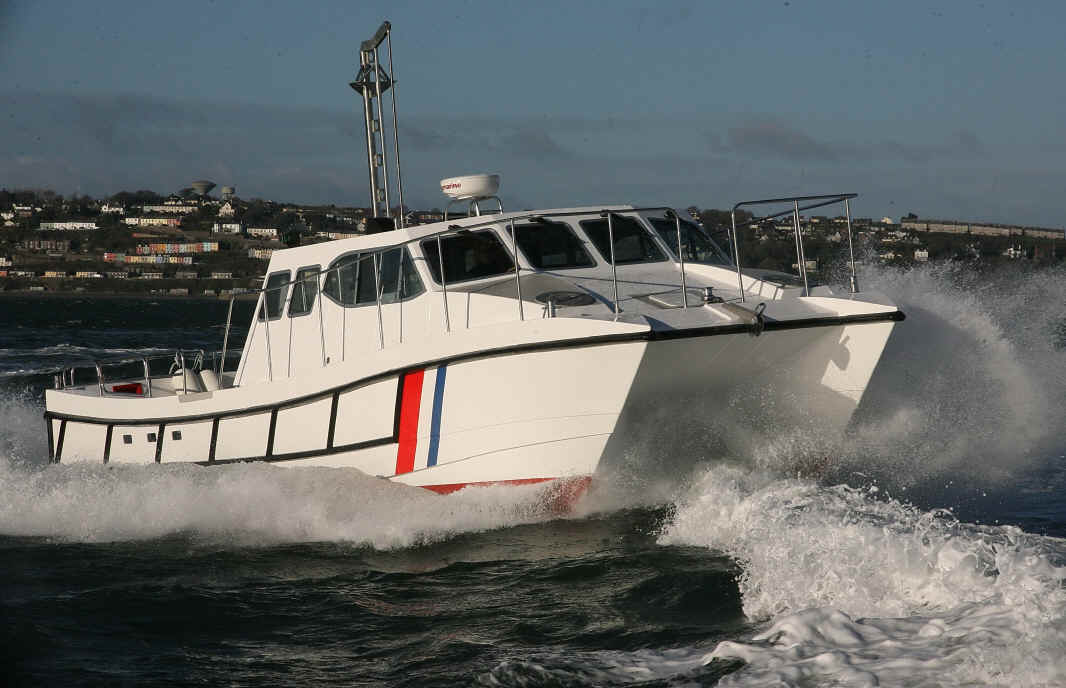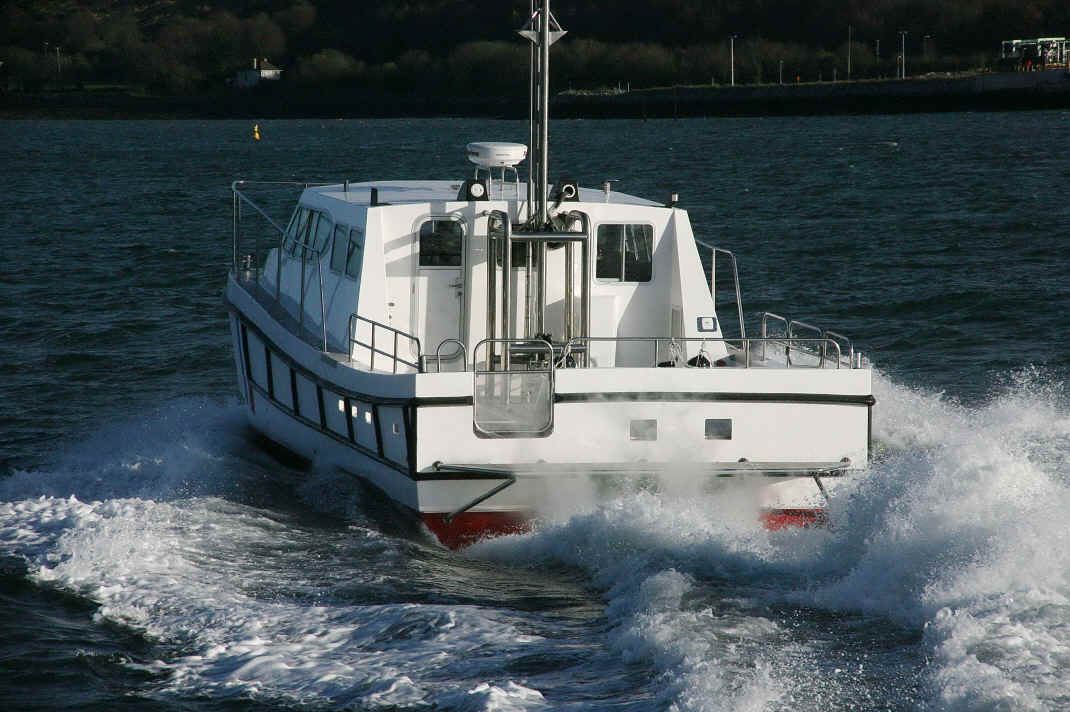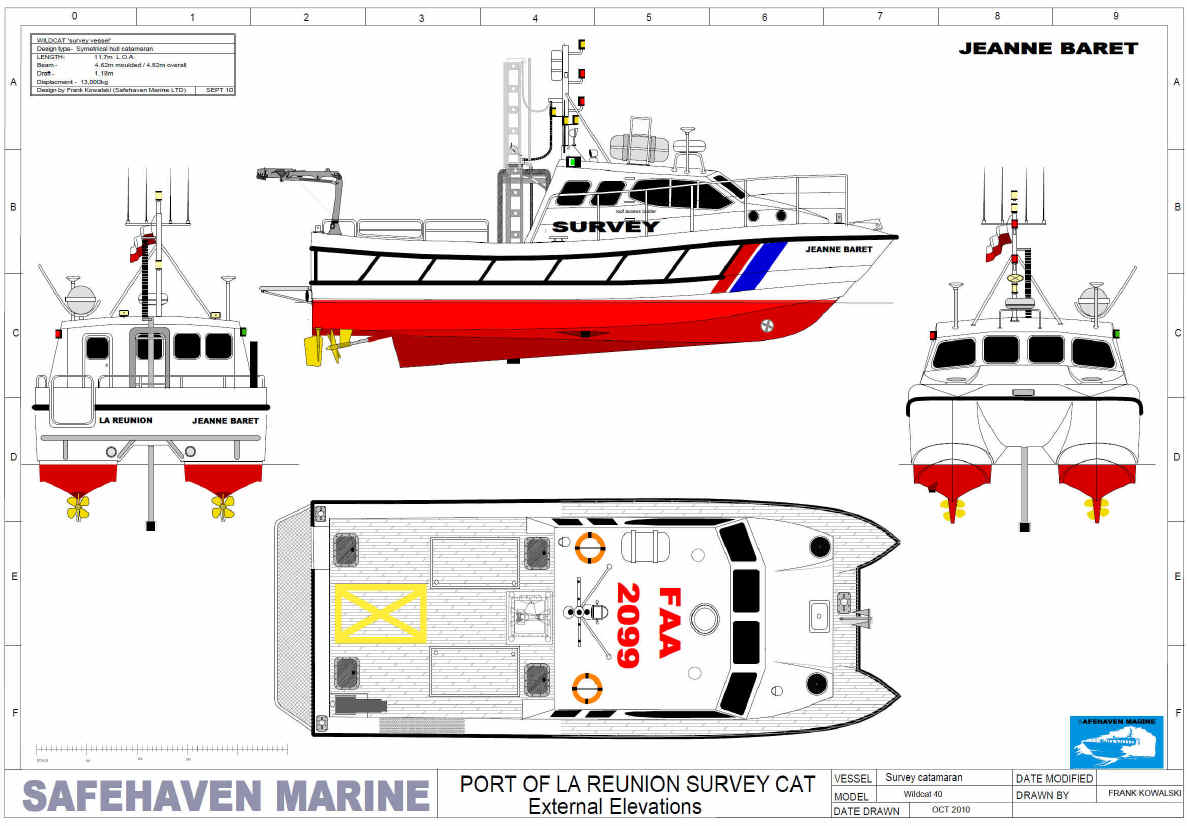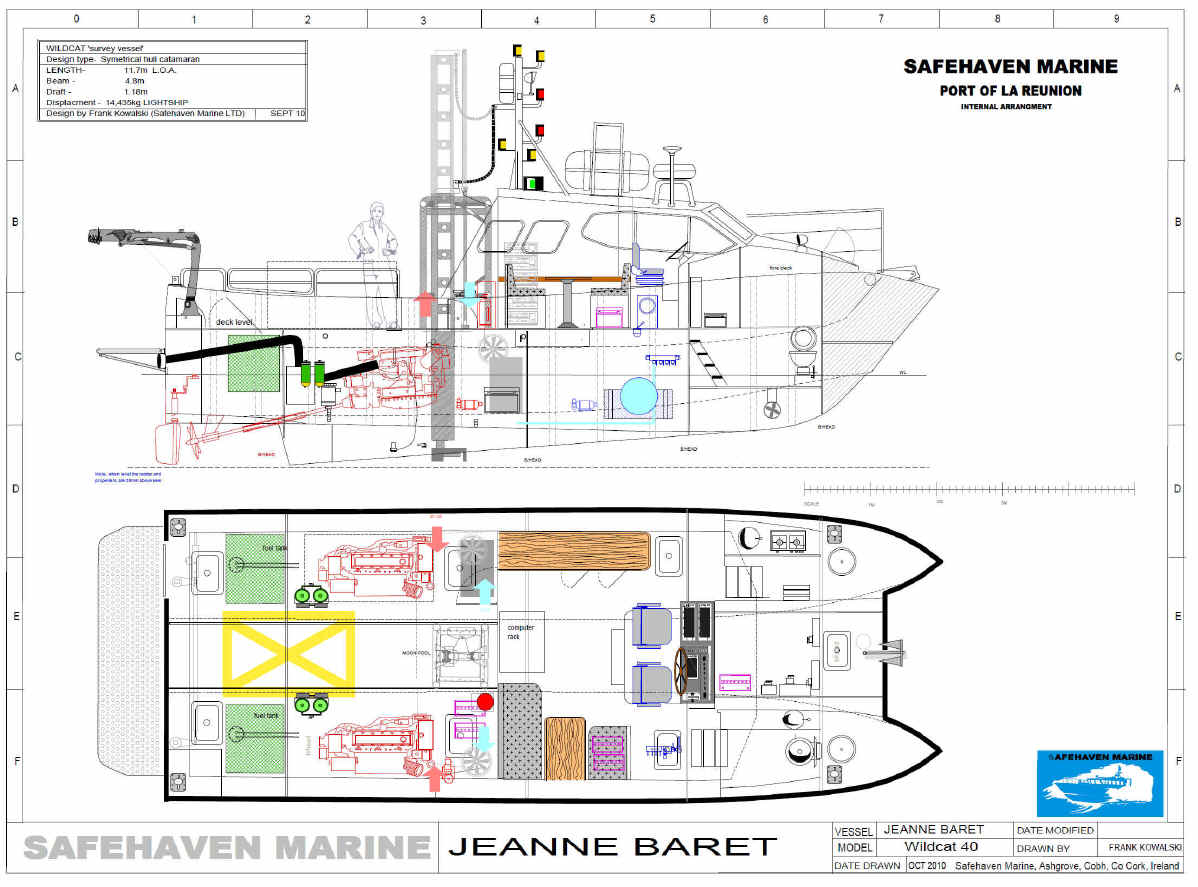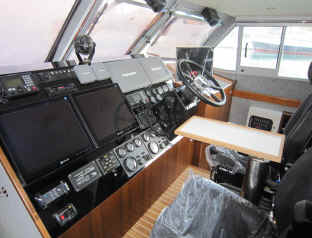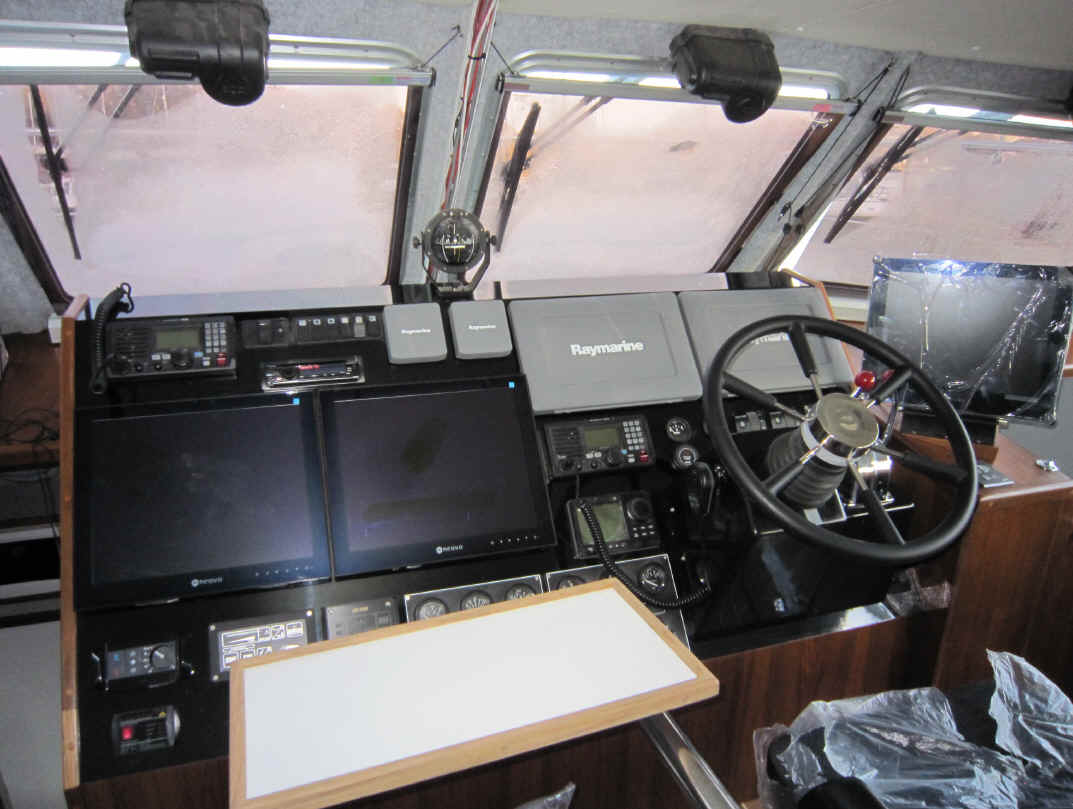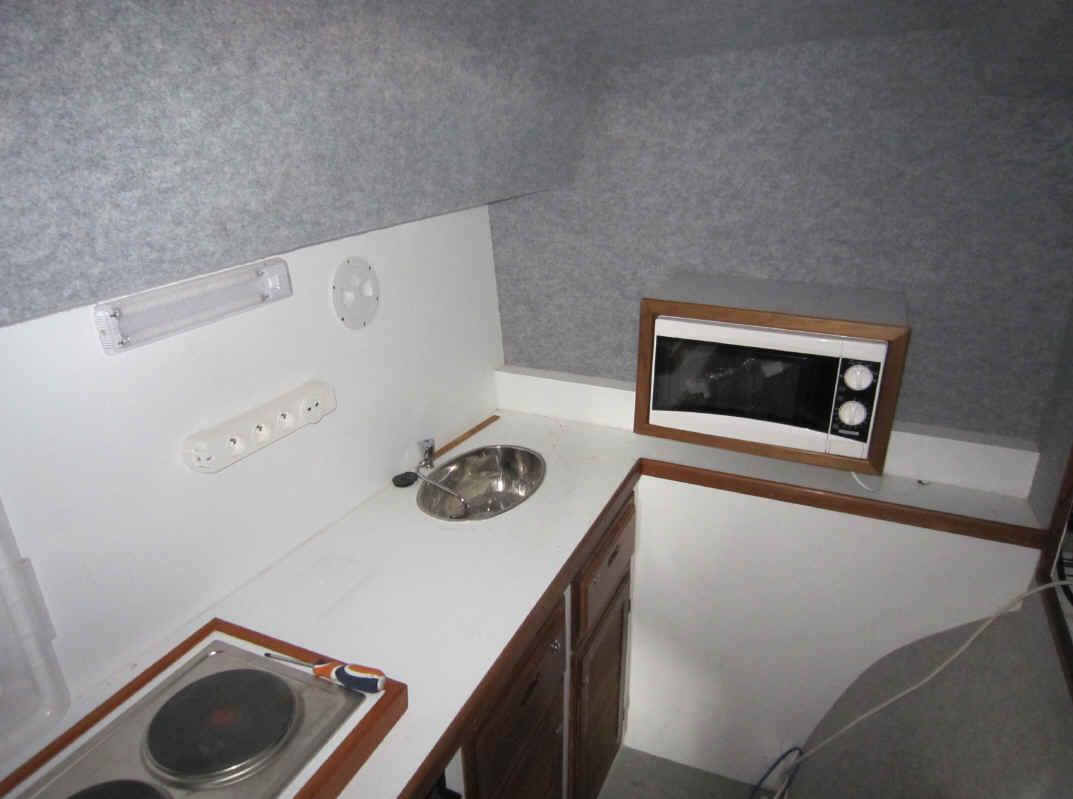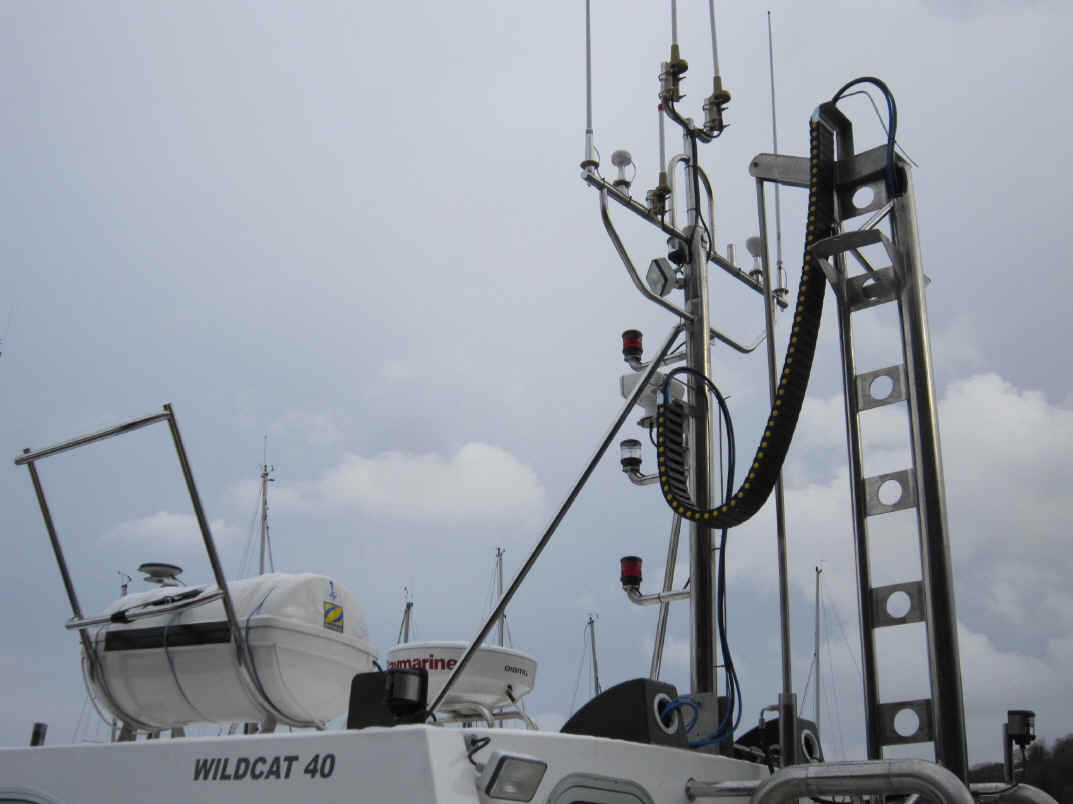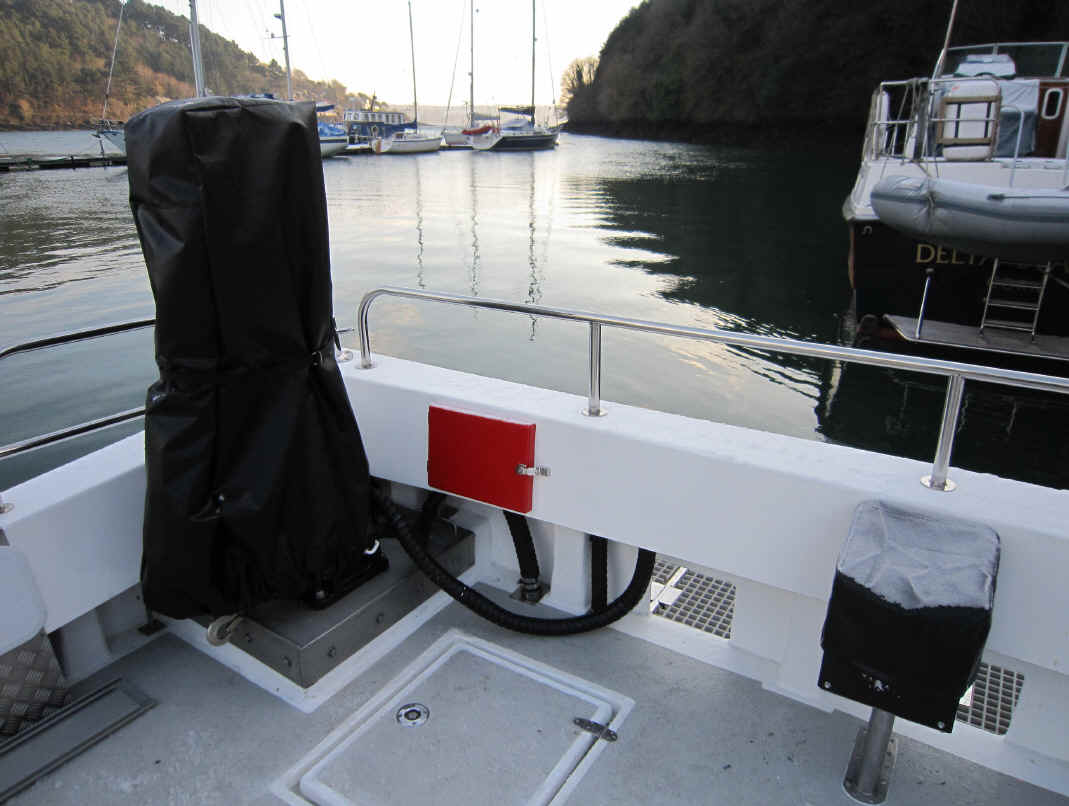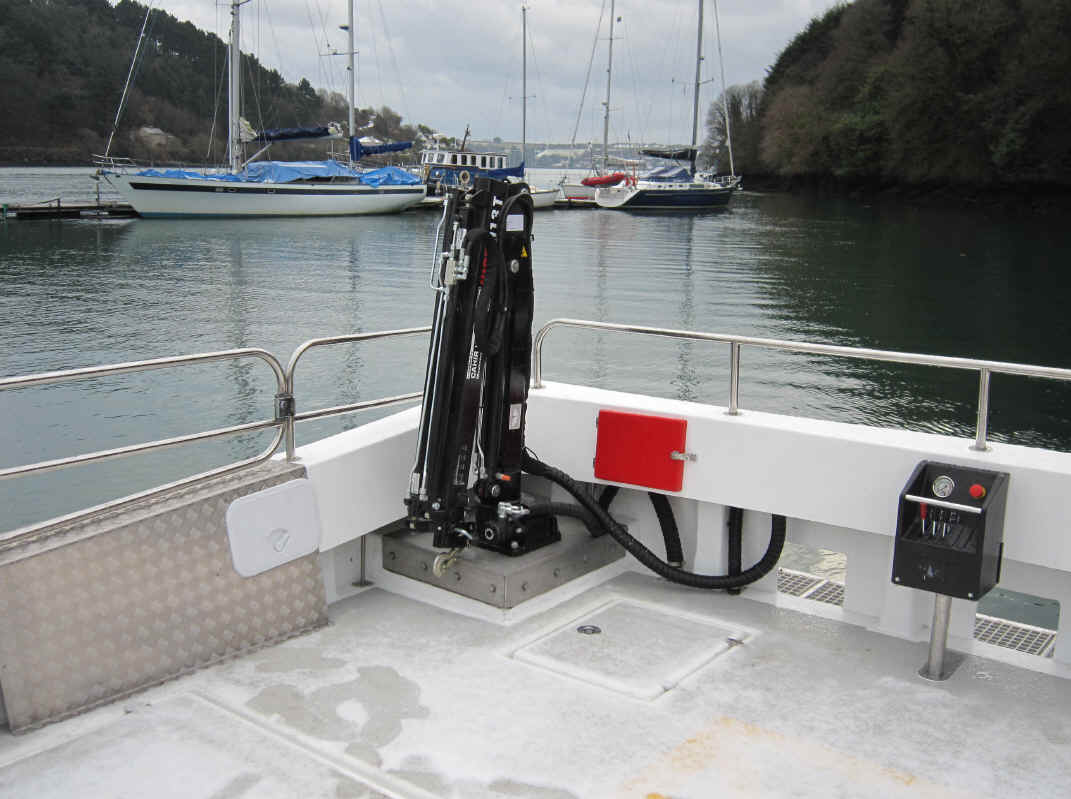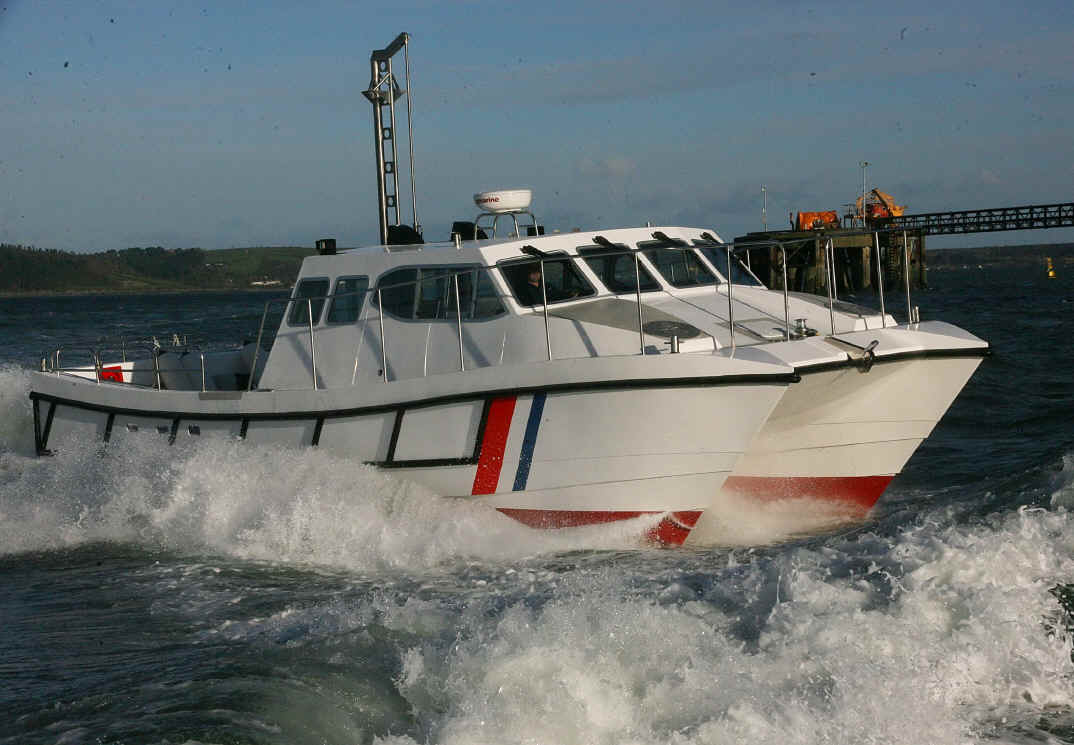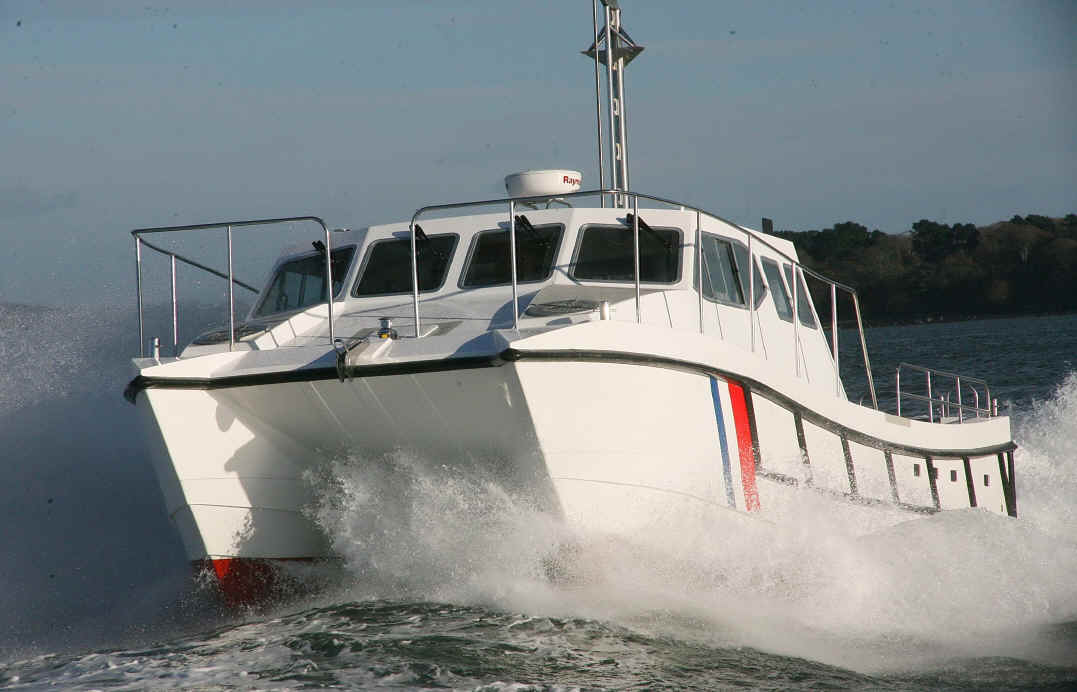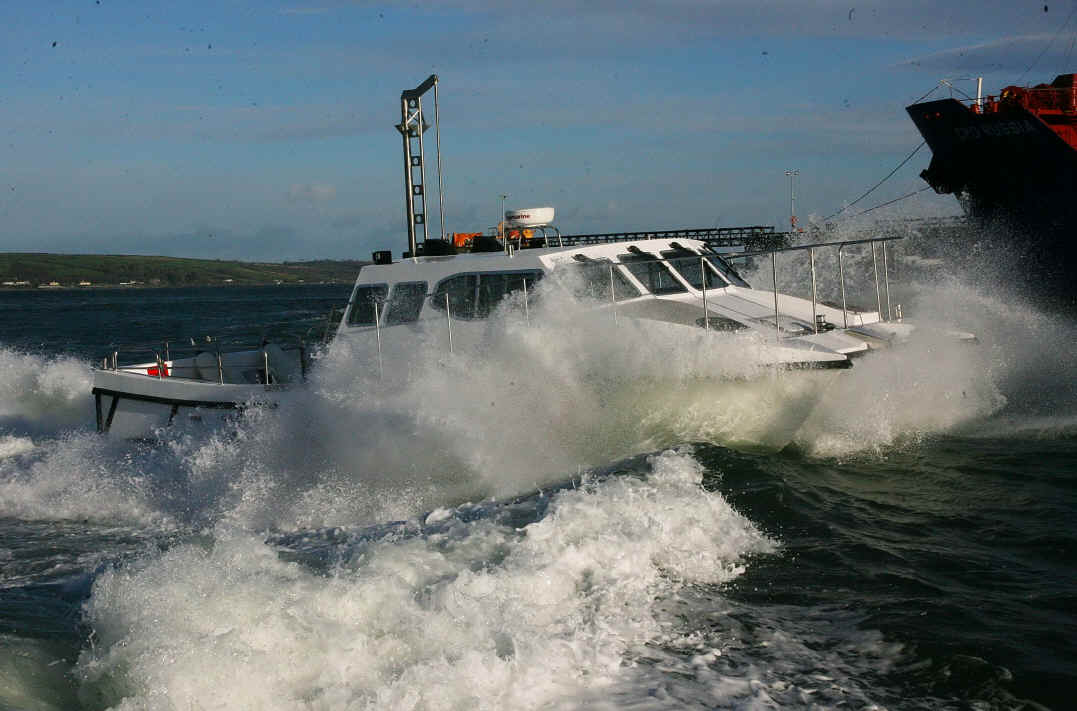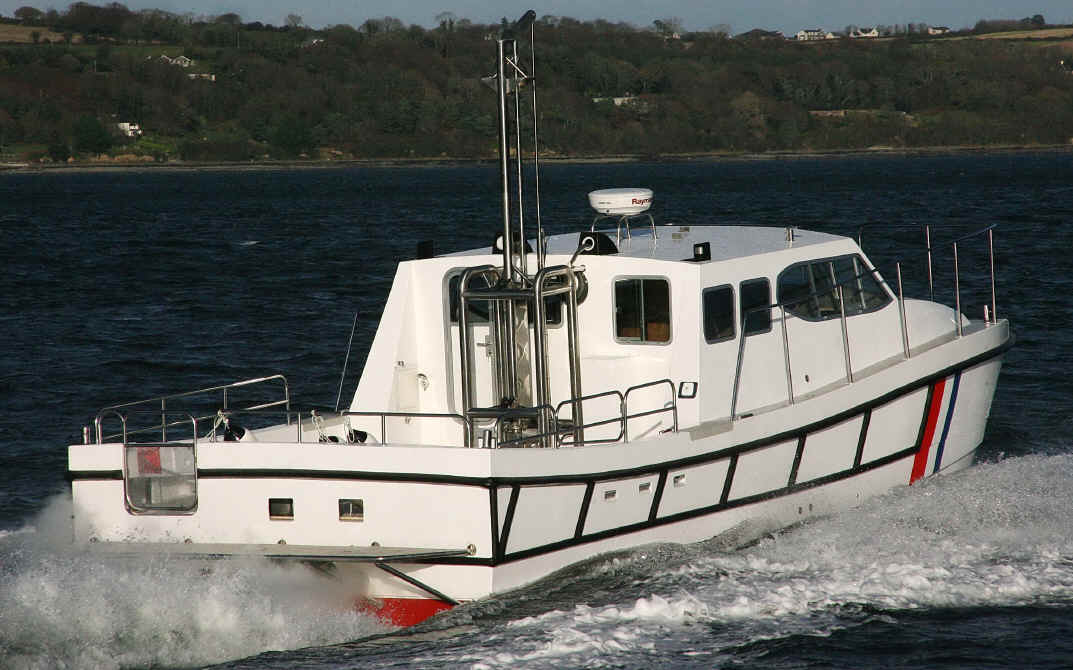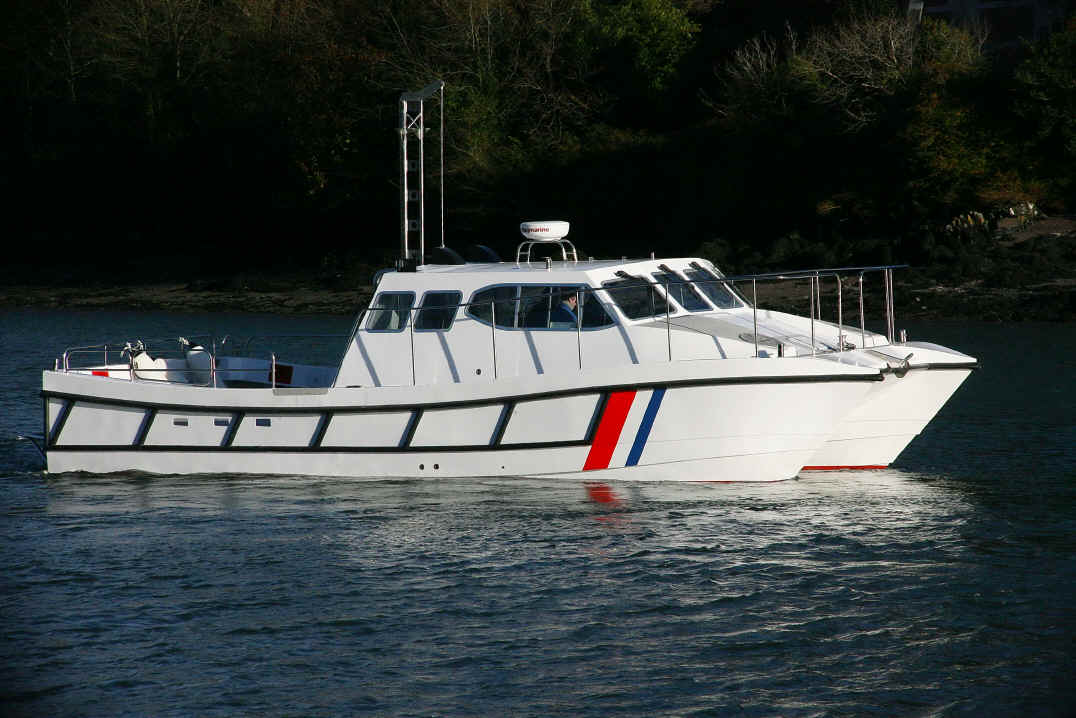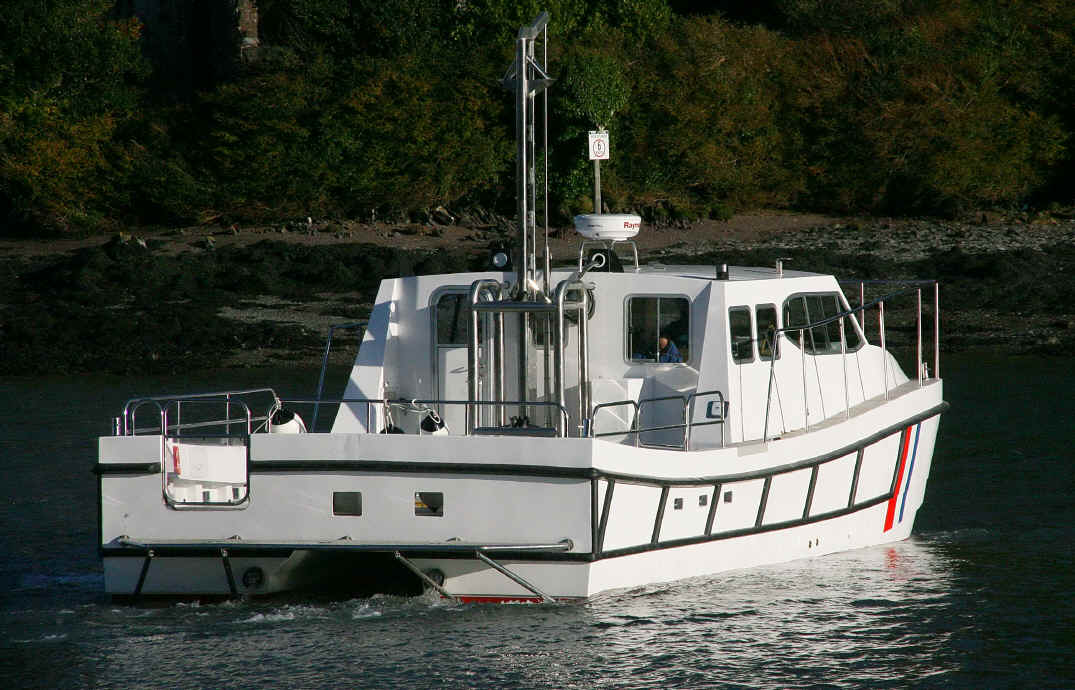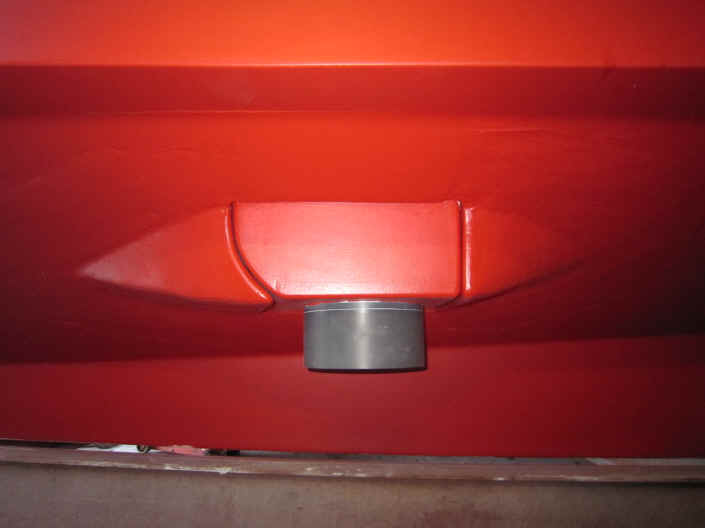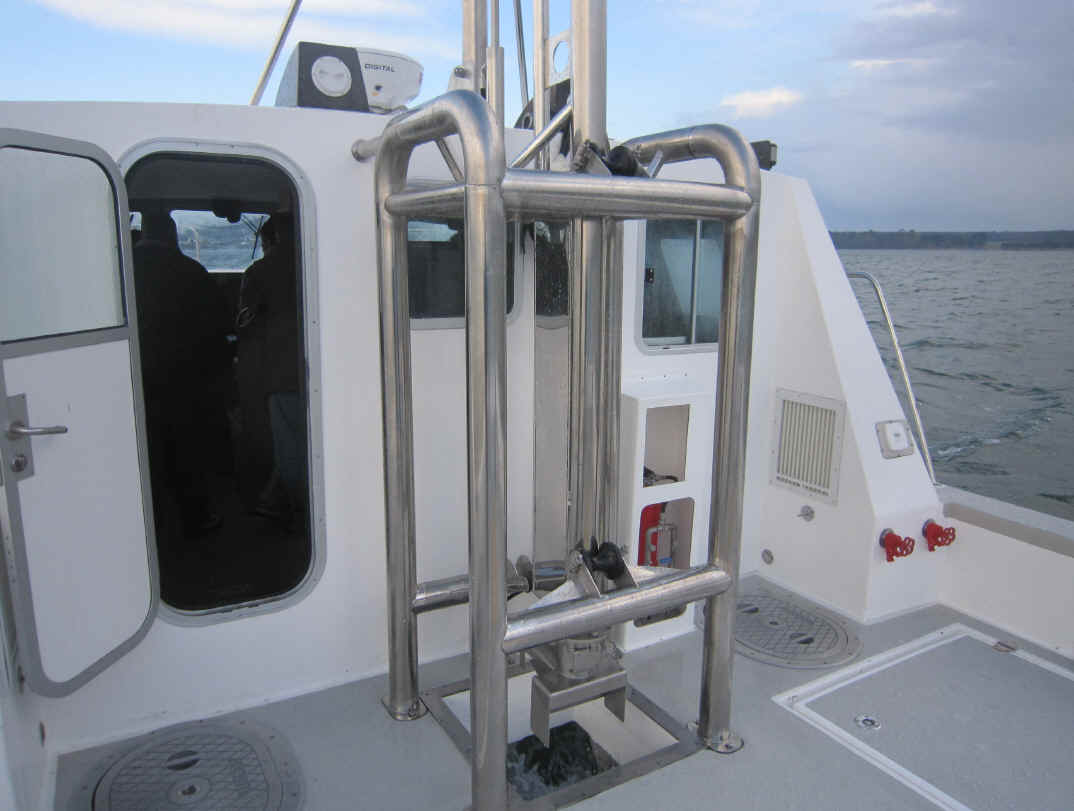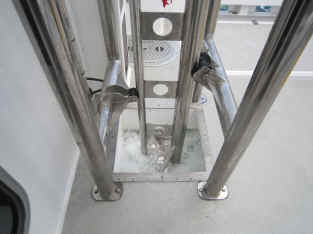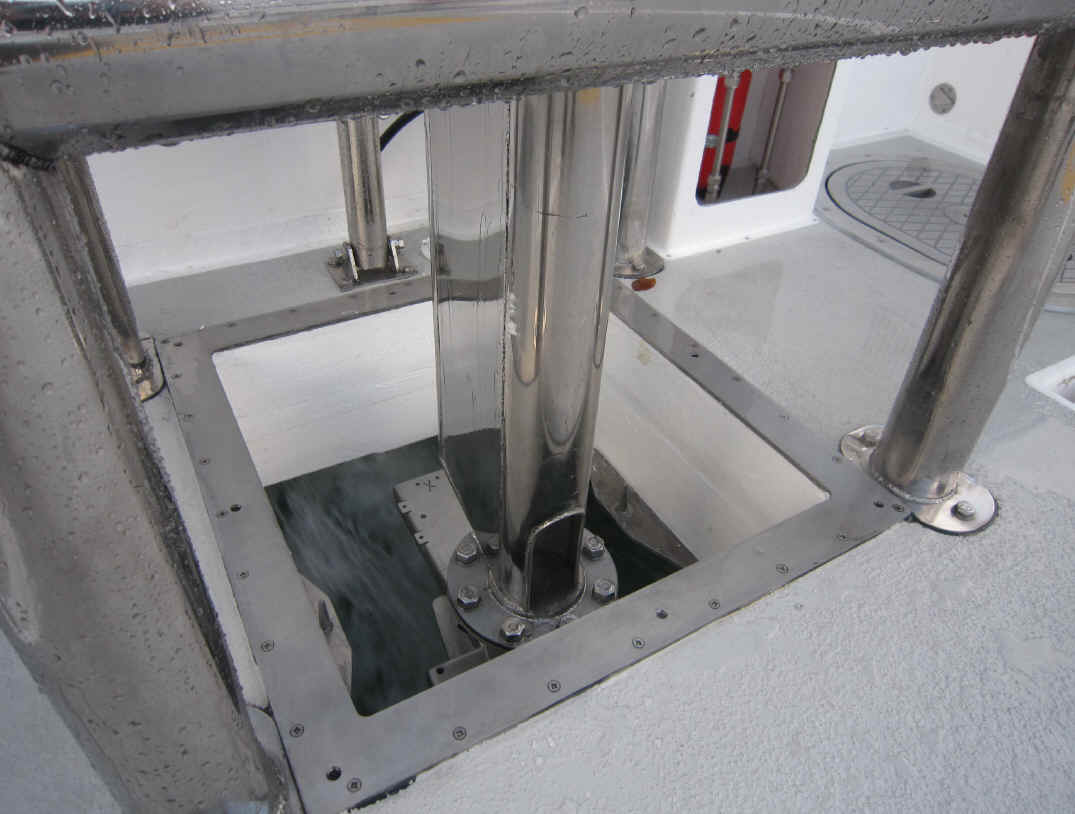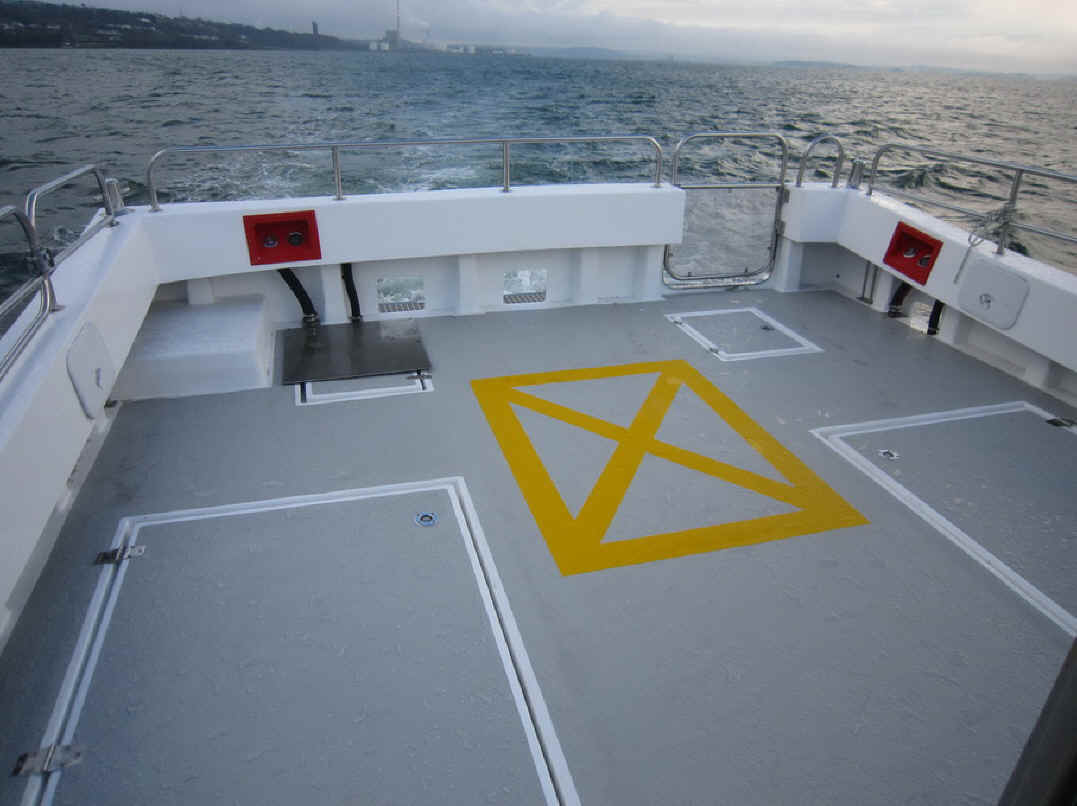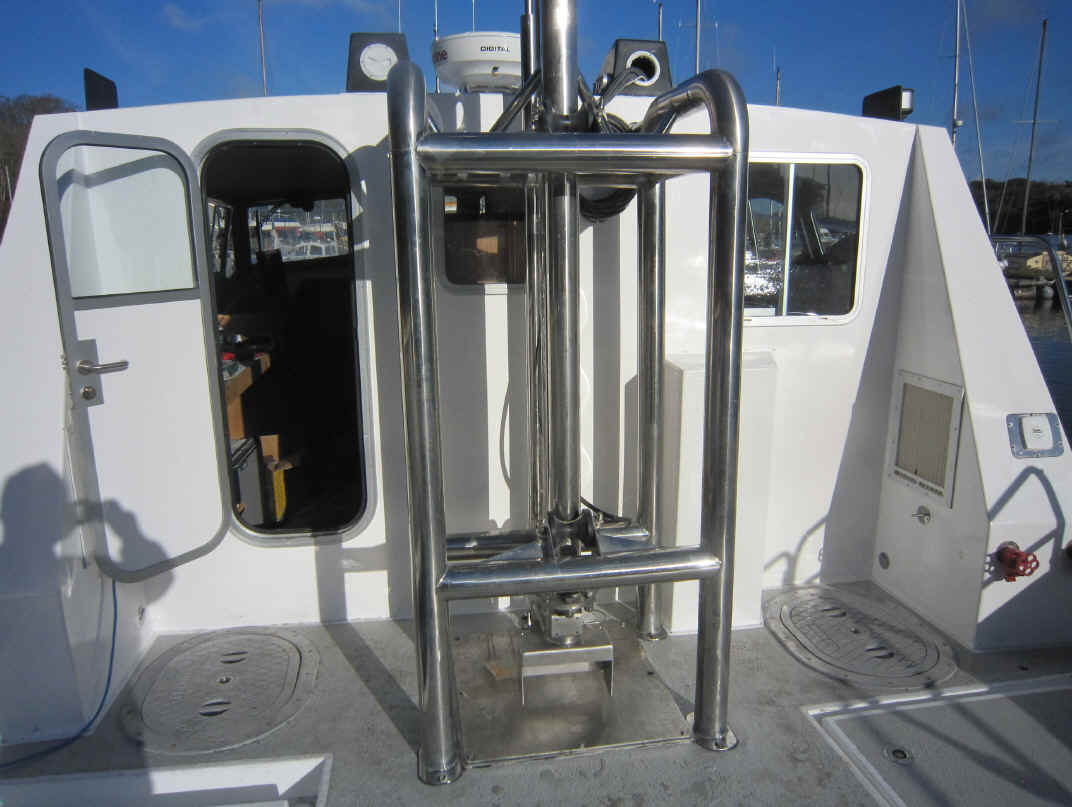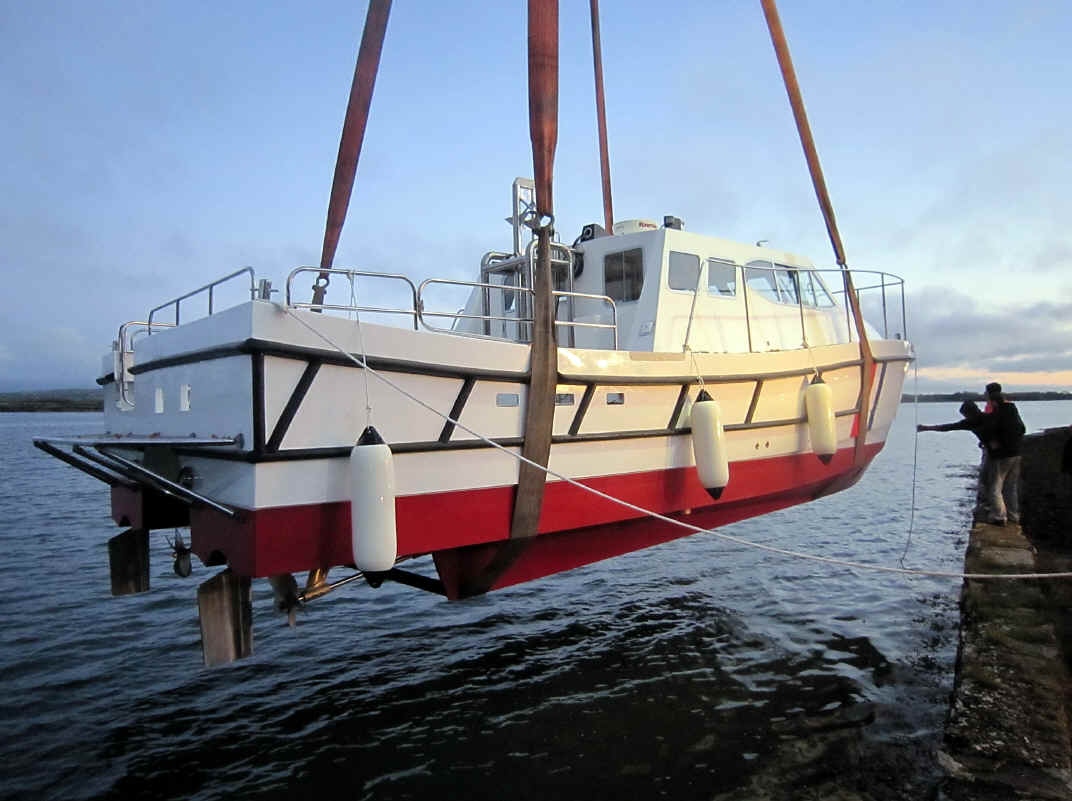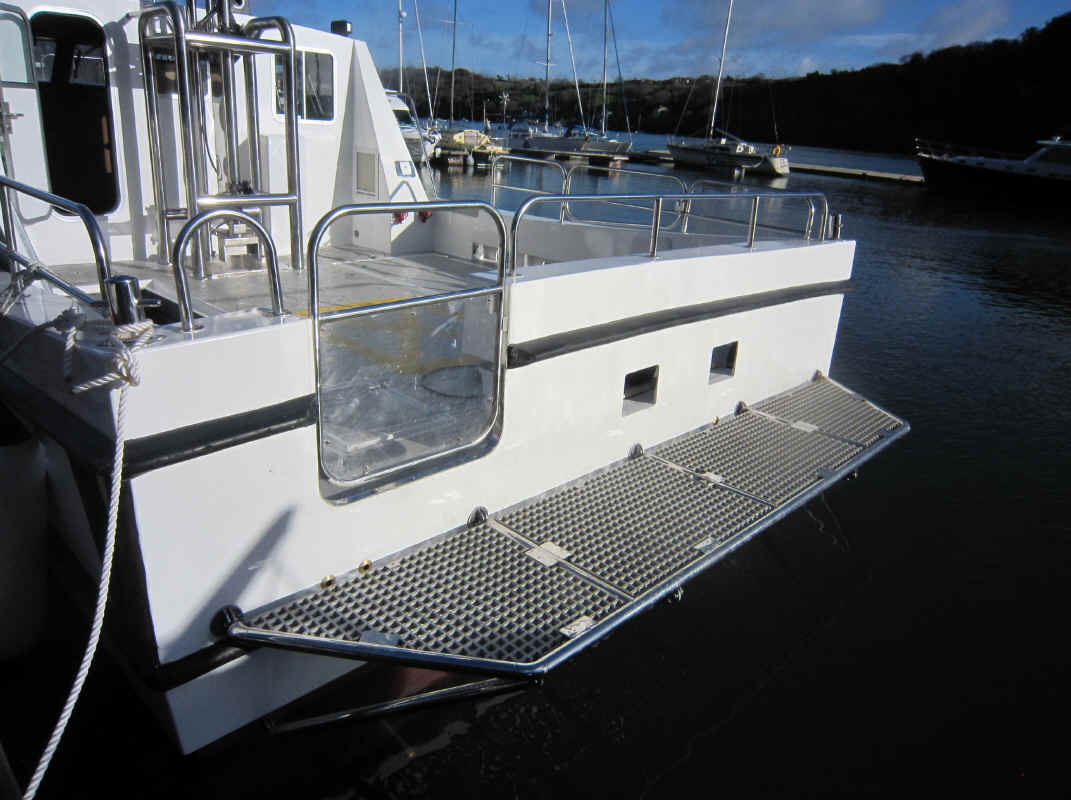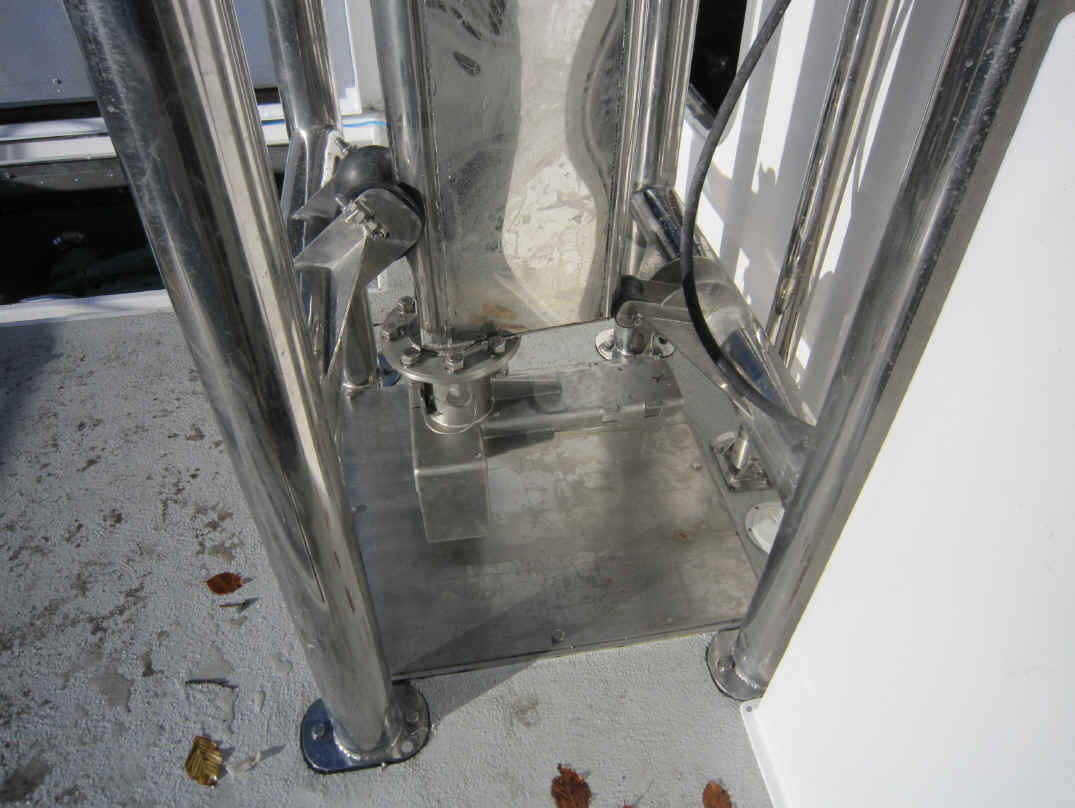LA REUNION WILDCAT 40 HYDROGRAPHIC VESSEL
'JEANNE BARET'
Safehaven Marine have
launched one of their successful Wildcat 40 catamarans, the Hydrographic vessel
'Jeanne Baret' for the
port
of
La Reunion
, off the
South East coast
of
Africa
. Safehaven Marines Wildcat range of GRP symmetrical, high buoyancy hull
catamarans is thoroughly proven with over 20 being built since 2003 and in
commercial service throughout Europe and now extending further afield into
international markets. The design is easily driven and has been proven to
demonstrate excellent seakeeping abilities in rough weather conditions, as the
cover shot amply demonstrates with her running through 5m breaking seas.
The vessel was purchased through the French Hydrograhic equipment supply
company Cadden after an international tender by La Reunion in 2009. The vessel
was built under survey by Bureau Veritas to the French Maritime authorities
regulations. The vessel is fitted with multi beam sonar equipment supplied by
Cadden including- - multi beam echosounder : Sonic 2022 from R2Sonic,
inertial motion unit : F180R from Coda Octopus, with remote unit on top
of the multibeam, real time speed of sound measurement : Mini SVS from Valeport.
GNSS receiver : Proflex 500 from Ashtech with RTK correction received by GSM/GPRS,
single beam echosounder : NS620 RT from Reson, Receiver for tide : ADL Vantage
from Pacific Crest. Survey Software : Hypack/Hysweep for real time acquisition
and post processing. Electronics : all included in 1 cabinet H x Width x Depth :
1600 x 600 x
800 mm
, including a powerful PC unit and a 3000VA UPS module with additional
battery 3 x 17’’ colour displays for the hydrograph equipment operated
through a wireless keyboard and mouse. The
multi beams transducer is deployed through a moon pool in the aft deck by a
hydraulically operated deployment frame that was specially designed and
developed by Safehaven Marine. The underwater section of the sonar head mounting
is hydro-dynamically efficient being of aeroform shape to minimize turbulence
and pressure loadings on the mountings, the sonar head can lowered down to below
keel level and be lifted up to above deck by hydraulic rams, the moon pool can
then be closed allowing safe storage of the transducer during high speed
transits. A second dual beam transducer is fitted in the St/bd hull in a
removable module allowing transducer interchange afloat, this is fully faired
into the hull minimizing turbulence. The design features a f/wd cabin
arrangement with a large, spacious aft cockpit. The main accommodation
incorporates a central helm position with alongside seating for the
hydrographical equipment operator / navigator and provides panoramic vision all
round with all the electronic navigation and hydrographic displays situated in a
large console. A work bench is fitted to the port side of the cabin stretching
its full length, all the computers for the hydrograpic equipment are stored in a
vertical rack / cabinet fitted at the aft of the cabin. To port is a large
dinette seating area with a table between. In the st/bd hull is a large heads
compartment which is fully lined in white Formica fitted with an electric toilet
and sink. In the port hull f/wd is a full galley with 240v hob, sink, fridge and
storage lockers. Onboard electrical power is from a 10kw 240v generator
supplying multiple sockets throughout the vessel. Other equipment includes a
1500W electric capstan, Electric 95kgf bow thruster, Electro hydraulic 013T HIAB
crane, Dive platform , security alarm system and a full compliment of Raymarine
navigation equipment. The vessel is also fitted with a 24,000btu air
conditioning unit with high level outlets in the cabin roof for efficient
cooling, the cabin roof has been insulated with 50m insulation to minimize heat
transmission in the hot climates the vessel will operate in. Engine room cooling
and ventilation is from twin 450mm 24 fans supplying 4800m3/hr of air to the
engine room which exhausts heat through separate outlets. Solar Solve blinds are
fitted to all windows, all of which will ensure a comfortable working
environment for her crew. On initial sea trials she performed exceptionally well
proving very quiet with only 70db being recorded in the cabin at 15kts, reducing
to just 65db at 7kts survey speeds and achieving a 21kts maximum speed
comfortably exceeding her contract speed requirement of 18kts, and at
which speed the noise level was still below 75db, all at a 14,200kg displacment.
By virtue of the heavy duty continuous rating on the Volvo D7 260hp mechanical
engines, her operational speed is between 20kts. The vessel is certified for 12
passengers and two crew.
Below,
Wildcat 40 'Jeanne Baret' for the Port of La Reunion undergoing rough weather
sea trials off Cork, during the night it had blown very hard with 40kts of wind
from the South East with waves peaking at 7.5m a few hours before we went out,
by then the wind had moderate but we still had 6m swells which were breaking
well over the Harbour Rock, and against a strong ebb tide, to create pretty
rough conditions. You can watch a video of the trials on you tube from this
link- CLICK
HERE TO SEE THE VIDEO
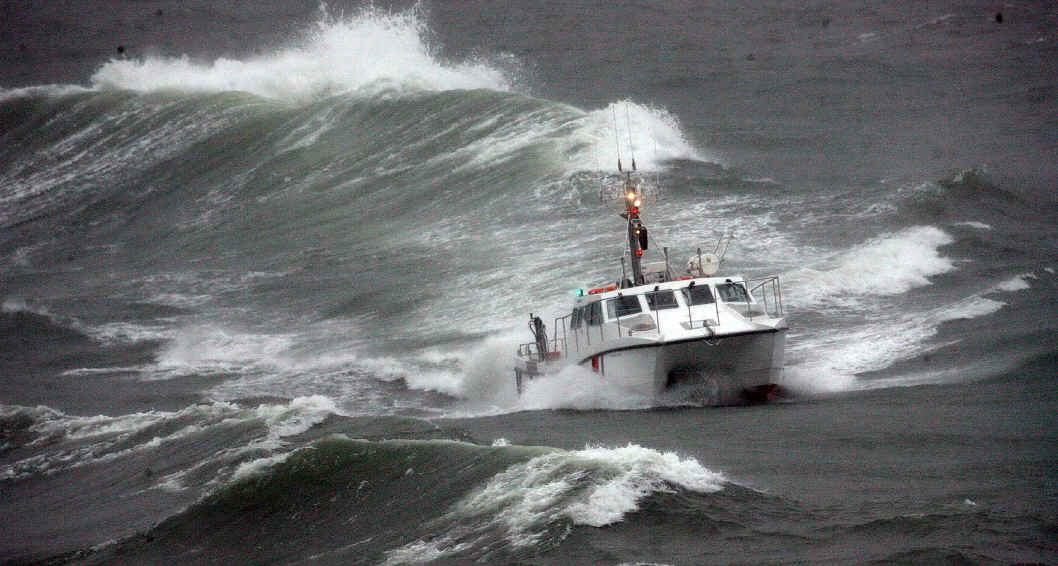
BANNER ADD TEST
